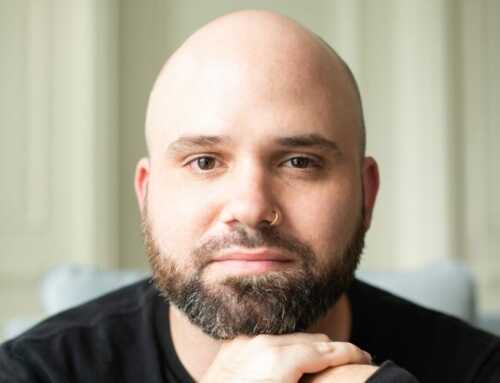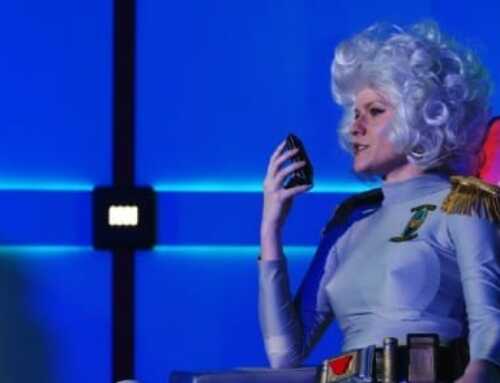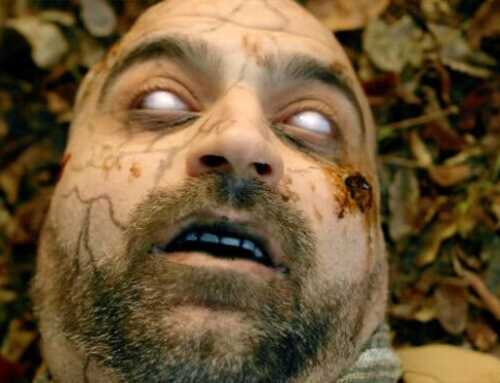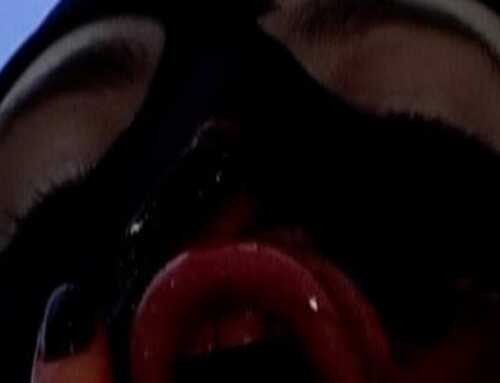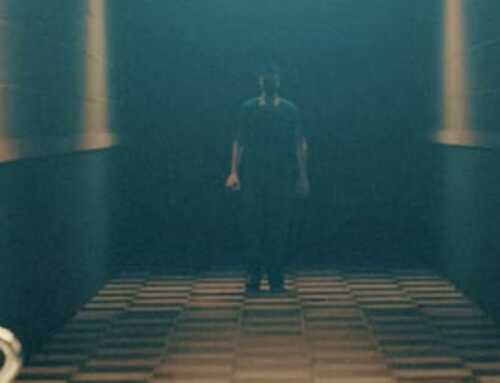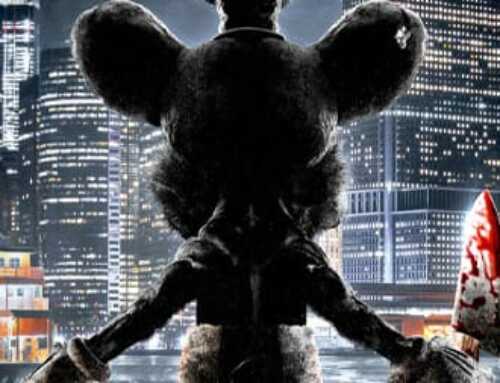What were to happen if the one place you felt safe, turned on you? And the person who needed to feel safe, was an agoraphobic recluse, living in a small apartment by himself. The short answer, nothing good. Shudder’s latest film, Night’s End, follows this exact premise and to induce even more anxiety, throws in a haunting. Directed by Jennifer Reeder(V/H/S/94), the film stars Geno Walker (Chicago Fire), Kate Arrington (Mare of Easttown), Felonious Munk (Block Party) and Michael Shannon (Knives Out). The chilling original score was provided by composer Casey J. Cooper (CoastalDives). Below Casey dives in on what’s it like to create an original, horror film score, and in the case of Night’s End, one fit for an exorcism.
-You have worked with Night’s End director, Jennifer Reeder on some other projects. Because she was already familiar with your style, did she give you a little more room to experiment?
Jennifer has always been a supporter. She’s a very positive and open person to work with. It was like that when I scored my first film for her and it was the same for Night’s End. I think that having worked on five or so other shorts together, she trusted me to take the music where I wanted to. Before I had any film, I was sending her basic rough drafts as I composed them, and thankfully she was excited about my general direction. I knew I had to get pretty dark with these compositions, so that was new territory for me. My objective was to create a feeling of discomfort and dread to match the lead character’s state of mind in the film. But ultimately, I’m there to try to elevate the film when needed, to support Reeder’s vision, and to otherwise stay out of the way.
-Did the palate of sounds for Night’s End come pretty quickly to you?
I’m always a fan of simple and static synthesizer tones to get ideas started. Once I establish a chord progression or melody that I like, then I’ll dive further into more interesting and modulating sounds. I knew right away that I wanted to have tones that paid homage to classic horror scores without being too imitative. I also felt that pairing those with more traditional orchestral sounds would give me a lot of room to explore darker textures and density. Strings and woodwinds work especially well if you want to create dissonance, so using them along with synthesizers gave me a very flexible palette to work with.
-How would you say your Night’s End score is different from some of the other horror film scores out there?
This score is dark and ominous from the beginning, but to match the pace of the film, it’s very much a slow burn. There are a lot of gentle moments in the music. I have a melancholic style and that is very much present in this score, so there are several themes that would be pretty if not for the subtle dissonance that gives all of it an eerie discomfort. And there are several groupings of returning themes, getting more degraded and dissonant each time they’re used. Playing with and adding variations to these returning melodies and progressions throughout the score helped to make it a unified whole.
-Do you have a favorite scene, musically, from Night’s End?
I’m usually a fan of the softer moments in my music, and that’s still true with this score. But there’s a scene in the film, during the exorcism, where everything comes to a head and all hell breaks loose. This was the one scene where Reeder had to push me past my comfort zone, asking me to get as terrifying and sinister as possible. That was scary for me because I wasn’t sure if I could do it. I had to get more dissonant, chaotic, and atonal than I’ve ever been. There was a lot of self-doubt. Was it going to sound corny? Was it cliche? Am I overdoing it? These were the questions going through my mind as I was composing for this scene. But now that I’m removed from it, I see that a lot of growth happened. It’s unique to anything I’ve ever done and because of that, it’s now one of my favorite moments in the score.
-What instrument do you find to be the most effective in instilling dread?
I think strings and reeds are the best for this. They’re beautiful instruments, but they can also be very harsh, especially in the higher ranges. Our brains and ears naturally like harmony and consonance. So it doesn’t take much detuning with a group of orchestral instruments to make things uncomfortable for us. When these sounds are out of tune with each other, we know something isn’t right. This is very effective in creating a feeling of discomfort that most people associate with scary or creepy thoughts.
-How do you think your music evolves as the film goes on?
Just like the film, the music slowly gets more intense. It’s all a bit dark and dissonant, but so much of it is fairly gentle and ambient. This changes as the film intensifies. After everything goes nuts in the film, there’s a more classic theme in the closing scene that is melody driven and is pulling from previous melodic ideas that appeared earlier in the score. It’s subtle, and maybe most people won’t notice it outright. But it was intentional.
-Did you score the film in chronological order? Or did you save the most challenging scenes for last, after you were fully immersed?
I composed around 10 generic themes after I read the script. This was before I saw the film. It was extremely helpful because I could then see what fit where, which themes could work, and modify them appropriately. It was a short time frame to work in, so I was trying to be as efficient as possible. I would jump around and tackle the scenes that stood out to me first. Then I’d watch and listen from the beginning, take notes, think of improvements and changes, and dive back in. This was a process that I repeated over and over until everything felt right and all the music was where it needed to be.
-This is your first feature film to score. What did you learn from your Night’s End?
I learned to trust my instincts, but also to get a little unconventional. Take risks, and don’t shy away from them. Not everything you try is going to work. But when you push yourself and step out of your creative comfort zone, some beautiful things can happen. That’s how we grow.
-What are some of your favorite horror films?
I grew up watching a lot of classic John Carpenter and Wes Craven, so those films will always be near and dear to me. I really enjoyed “The House of the Devil”. Stylistically, it’s so cool and fun. “It Follows” is an amazing film and Disasterpeace’s score is one of my all-time favorites. “Hereditary” scares the hell out of me. One film that terrified me was “The Exorcism of Emily Rose”. So much of it plays out like a drama, but the scary scenes are so effective and incredibly dark. I still think about them.


